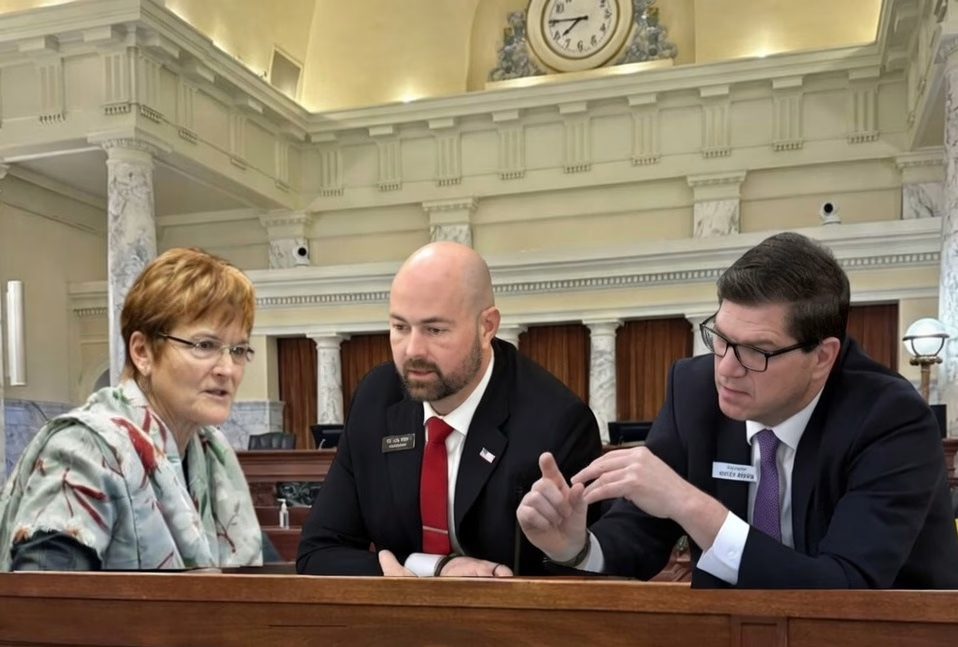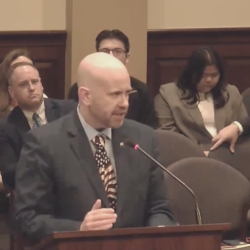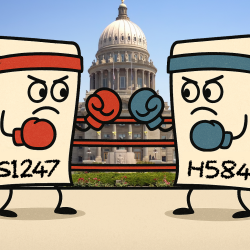This afternoon, Democratic Rep. Ilana Rubel introduced a bill to prohibit AI-created deep fakes from being used in political campaigns. The full text is not yet on the Legislature website, so I’m waiting to read the details.
This follows two bills that were introduced last week about cracking down on deep fake pornography. Our legislators are taking notice of the AI revolution and are trying to figure out how to handle it.
To hear some people say it, the rise of AI is the end of humanity. Others see it as a new tool that will revolutionize many industries. As usual, the answer is probably somewhere in between.
If you don’t understand AI, it can seem like magic, or even some sort of demonic ritual. In reality, it’s simply a very powerful computer program. Systems like ChatGPT or DALL-E are examples of deep learning modules, essentially computer programs that have amassed so much information that they’re able to mimic human reason. When you ask a question of ChatGPT or ask DALL-E to create an image, you’re not communicating with a mind, rather you’re inputting data into an algorithm that has some form of your query in its database already.
This is why AI is so powerful, but it’s also why it’s still so limited. A child can draw a primitive picture of a horse, with four legs and a long face, while AI can create a beautiful image of a horse in mid-gallop that has five legs. The program has amassed many images of horses and can craft one based on those, but it doesn’t understand that horses have four legs.

It’s getting better, though. Deep learning models grow in complexity at an exponential rate, and it’s conceivable that AI art will be utterly indistinguishable from reality within another year or two. If you want to laugh, check out the Twitter account Trump History, which posts AI-generated images of Donald Trump at various times throughout history:

Of course, the question is, how can we as a society prepare for a world where nothing is real anymore? The rise of deep fake imagery, audio, and video means we won’t be able to trust anything we see or hear. Not only will political figures have to deal with deep fakes of them saying or doing what they did not really say or do, real audio or video will be dismissed as fake.
Our ancestors went through various iterations of this process. Radio and television changed the way people interacted with political figures, and the internet and social media took it to another level. AI is going to be that on steroids, and I’m honestly not sure what anyone can do to stop it.
Rep. Rubel’s bill seems well-intentioned — deep fakes of political figures are going to be a big problem very soon. How will it be enforced? How can you prove that something is fake? The real problem with deep fakes won’t be the obvious troll jobs — if someone made a fake video of Donald Trump urinating on a soldier’s grave, nobody except Rachel Maddow would believe it was real. On the other hand, what about a video that is real except for one or two words? Someone could completely change the meaning of a statement or an interaction in a way that is subtle enough not to be noticed, and then it’s your word against the video. What will people believe?
Simply banning AI is impossible. These programs can run locally on your computer, and once images, audio files, or videos are released online, there’s no way to erase them from the internet. Going after those who create deep fakes of real people for political or nefarious purposes can be difficult as well. Many viral memes are initially shared by anonymous accounts, which makes finding the original creator extremely difficult.
This is usually when I suggest some grassroots solution, but I really don’t know where we go from here. Future generations are going to grow up in a world where discerning the truth about events is nigh impossible. I suppose the only thing we can do is return to our first principles. In an age when knowing the truth is impossible, it’s all the more important to hold to the Truth.
I wish the Legislature luck in debating this issue.
Check out the bonus note for subscribers over at Substack!
About Brian Almon
Brian Almon is the Editor of the Gem State Chronicle. He also serves as Chairman of the District 14 Republican Party and is a trustee of the Eagle Public Library Board. He lives with his wife and five children in Eagle.














One Comment
Comments are closed.